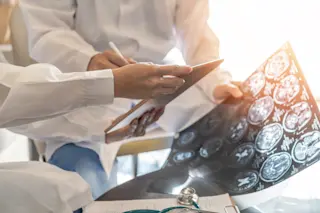High-profile sports like football and soccer have brought greater attention in recent years to concussions – the mildest form of traumatic brain injury.
Yet people often do not realize how common concussions are in everyday life, and seldom does the public hear about what happens in the aftermath of concussions – how long the road to recovery can be and what supports healing. Concussions are important to understand, not only for recovery, but also for the insights that the science of recovery can bring to brain health.
I am a speech language pathologist and an instructor in physical medicine and rehabilitation. I specialize in brain injury rehabilitation, with experience ranging from coma recovery to concussion care.
Treating problems tied to head injuries is complex. This is, in part, because it is not possible to directly examine the brain of a living person and because every brain injury is unique. Many ...














